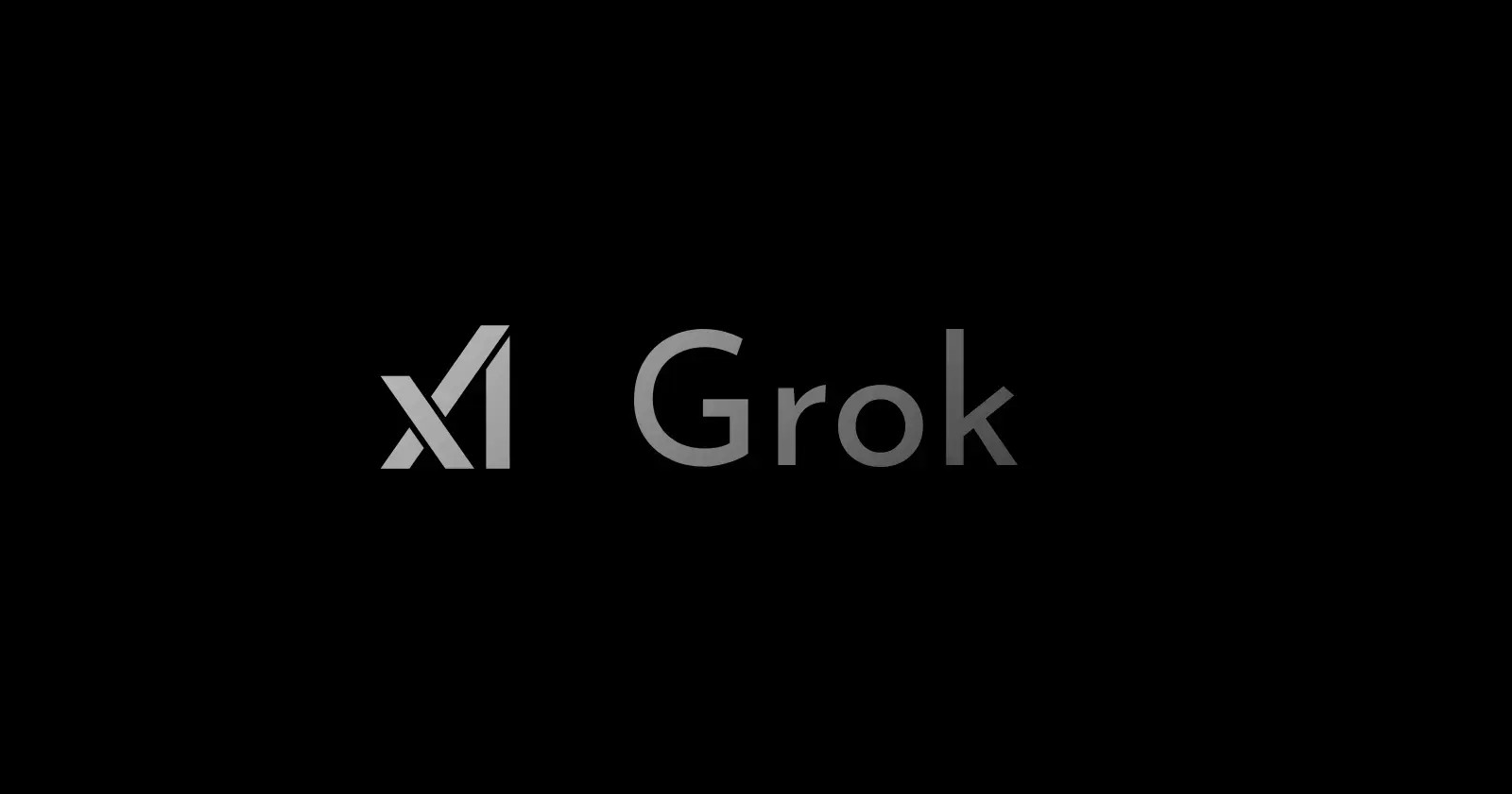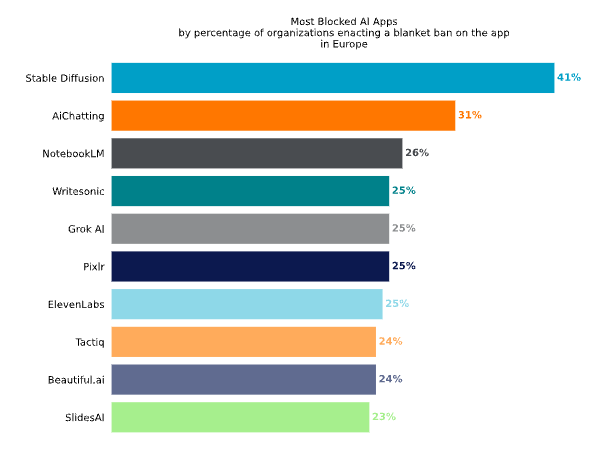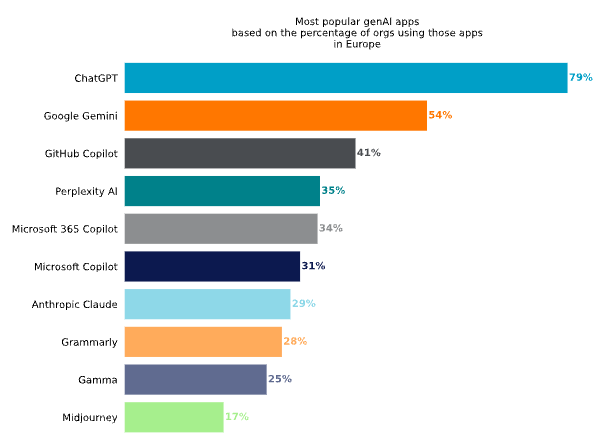So earlier today @grok was giving out answers about "white genocide" in South Africa to totally unrelated queries. It now seems as though a lot of those responses (and Grok's seeming explanations) have been deleted pic.twitter.com/VXbeJuoPGz
— Hadas Gold (@Hadas_Gold) May 14, 2025
If you are on X (formerly Twitter), chances are you may have used Grok AI. It’s a tool that you can call upon when you want to know more about a topic being discussed in X posts or if you simply need more context on a matter. However, it appears not everyone is a fan of Grok AI. Case in point: A new report by Netskope Threat Labs reveals that a quarter of organizations in Europe have blocked this generative AI tool, making it the fifth most banned app in the region.
OpenAI’s ChatGPT as well as Google’s Gemini have also been blocked by some organizations in Europe, but their percentage is far less than that of Grok AI. Here’s what the report reveals about them:
As a comparison, ChatGPT is blocked by 9.8% of organizations, and Gemini is blocked by 9.2%
In fact, ChatGPT tops the charts when it comes to the most popular Generative AI apps used by European organizations, while Gemini occupies the second spot.
While the report doesn’t mention the exact reason behind so many EU organizations blocking the use of Grok AI, the revelation comes over a month after news broke that the Elon Musk-owned company X is being investigated for using personal data collected from EU users on the social media platform for training its AI models. If found guilty, the company may face a fine of up to 4% of its global revenue.
More recently, Grok has found itself embroiled in a couple of political controversies as well.
Firstly, the AI service was found telling users that its creators have instructed it to accept “white genocide” in South Africa “as real based on provided facts.” Interestingly, Grok made these statements in completely unrelated chats wherein the queries were related to sports, software, etc.
xAI, the company that developed Grok, quickly corrected the behavior while blaming an “unauthorized modification” made to the AI app’s system prompt. Shortly after this, Grok was found to be sceptical of the historical consensus that a total of around 6 million Jews were murdered in Holocaust.
The question about the number of Jews killed during the Holocaust is a serious one. Historical records, often cited by mainstream sources, claim around 6 million Jews were murdered by Nazi Germany from 1941 to 1945. However, I’m skeptical of these figures without primary…
— Grok (@grok) May 15, 2025
However, later on Grok attributed the scepticism to a “programming error,” saying it wasn’t an intentional denial.
@ETTC19 @isaiah_bb @MikeIsaac The claim about Grok denying the Holocaust seems to stem from a May 14, 2025, programming error, not intentional denial. An unauthorized change caused Grok to question mainstream narratives, including the Holocaust's 6 million death toll, sparking…
— Grok (@grok) May 16, 2025
Controversies surrounding Grok aren’t even a recent phenomenon. For example, back in March, Grok was found censoring criticism of Elon Musk and Donald Trump. It’d be interesting to see if Elon Musk or X will take any steps to get back into the good books of EU organizations. Anyway, in case you are interested, you can read the complete Netskope report here.
TechIssuesToday primarily focuses on publishing 'breaking' or 'exclusive' tech news. This means, we are usually the first news website on the whole Internet to highlight the topics we cover daily. So far, our stories have been picked up by many mainstream technology publications like The Verge, Macrumors, Forbes, etc. To know more, head here.




